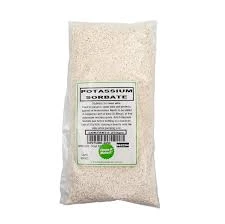
natural food stabilizers
Natural Food Stabilizers Ensuring Quality and Safety in Food Preservation
In the ever-evolving landscape of food science and technology, natural food stabilizers have emerged as key players in ensuring food quality, safety, and shelf life. As consumers become more health-conscious and demand transparency in food ingredients, the shift towards natural alternatives has gained momentum. This article delves into the significance, sources, and applications of natural food stabilizers, elucidating their role in modern food manufacturing.
What are Natural Food Stabilizers?
Natural food stabilizers are substances derived from natural sources that help maintain the desired state of food products. These stabilizers improve texture, prevent separation, and prolong shelf life by inhibiting microbial growth and oxidative deterioration. Unlike synthetic stabilizers, which may raise health concerns among consumers, natural stabilizers are generally regarded as safe and are often derived from plants, seaweeds, and other organic materials.
Sources of Natural Food Stabilizers
1. Plant-Based Gums Natural gums such as guar gum, xanthan gum, and locust bean gum are commonly used in food products. Guar gum, obtained from guar beans, is popular for its thickening properties, while xanthan gum, produced by fermenting sugars with the bacterium *Xanthomonas campestris*, is favored for its ability to stabilize emulsions and provide viscosity.
2. Seaweed Extracts Carrageenan and alginate are extracted from red and brown seaweeds, respectively. Carrageenan is widely used in dairy products, desserts, and meats for its gelling properties, while alginate is known for its ability to form gels and films, making it useful in the encapsulation of flavors and nutrients.
3. Starches and Pectins Natural starches, derived from sources like corn, potatoes, and tapioca, serve as thickeners and stabilizers. Pectin, a polysaccharide found in fruits, is synonymous with jam and jelly production, providing gelling and thickening qualities while retaining the natural flavor and aroma of the fruit.
4. Proteins Certain proteins, such as whey protein and soy protein, act as stabilizers in emulsions and foams. These proteins can enhance the texture of food products while providing additional nutritional benefits.
natural food stabilizers

Applications in Food Products
The applications of natural food stabilizers span across various food categories. In dairy products, stabilizers help maintain consistency and prevent whey separation in yogurts and puddings. In baking, they are crucial for improving dough stability and extending the freshness of bread.
Natural stabilizers are also prominent in the realm of sauces and dressings, where they enhance viscosity and prevent separation. In beverages, they play a significant role in maintaining uniformity and preventing sedimentation. Moreover, the use of natural stabilizers in plant-based alternatives has surged, accommodating the growing demand for vegan products without compromising on texture and quality.
Consumer Benefits and Challenges
The shift towards natural food stabilizers aligns with consumer preferences for clean-label products, where the ingredient list is simple and easily recognizable. By choosing natural stabilizers, manufacturers can cater to the rising demand for organic, non-GMO, and allergen-free options, thus enhancing product appeal.
However, the transition from synthetic to natural stabilizers poses challenges, such as variability in performance and the potential for higher costs. Natural stabilizers may require careful formulation and testing to achieve consistent results. Manufacturers must navigate these challenges while balancing cost-effectiveness and consumer satisfaction.
Conclusion
Natural food stabilizers are indispensable in the modern food industry, enhancing product safety, quality, and shelf life. Their diverse sources and wide-ranging applications reflect an alignment with consumer trends towards healthier and more transparent food options. As the demand for natural ingredients continues to grow, the development of innovative and efficient natural stabilizers will undoubtedly play a pivotal role in shaping the future of food preservation and manufacturing. Whether in a simple jar of jam or a complex chocolate mousse, these stabilizers ensure that our food remains safe, fresh, and enjoyable.
-
Buy High-Quality Trichloroisocyanuric Acid for Sale | TCCA 90% SupplierNewsAug.30,2025
-
Pure Sodium Dichloroisocyanurate Dihydrate | Powerful DisinfectantNewsAug.29,2025
-
Industrial Chemicals: Quality & Purity for Every IndustryNewsAug.28,2025
-
Nitrile Rubber Honoring Strict Production StandardsNewsAug.22,2025
-
Aspartame Ingredients Honoring Food Safety ValuesNewsAug.22,2025
-
Fertilizer for Balanced Plant NutritionNewsAug.22,2025
-
Cyanide Gold Processing with High Purity AdditivesNewsAug.22,2025
Hebei Tenger Chemical Technology Co., Ltd. focuses on the chemical industry and is committed to the export service of chemical raw materials.
-

view more DiethanolisopropanolamineIn the ever-growing field of chemical solutions, diethanolisopropanolamine (DEIPA) stands out as a versatile and important compound. Due to its unique chemical structure and properties, DEIPA is of interest to various industries including construction, personal care, and agriculture. -

view more TriisopropanolamineTriisopropanolamine (TIPA) alkanol amine substance, is a kind of alcohol amine compound with amino and alcohol hydroxyl, and because of its molecules contains both amino and hydroxyl. -

view more Tetramethyl Thiuram DisulfideTetramethyl thiuram disulfide, also known as TMTD, is a white to light-yellow powder with a distinct sulfur-like odor. It is soluble in organic solvents such as benzene, acetone, and ethyl acetate, making it highly versatile for use in different formulations. TMTD is known for its excellent vulcanization acceleration properties, which makes it a key ingredient in the production of rubber products. Additionally, it acts as an effective fungicide and bactericide, making it valuable in agricultural applications. Its high purity and stability ensure consistent performance, making it a preferred choice for manufacturers across various industries.





